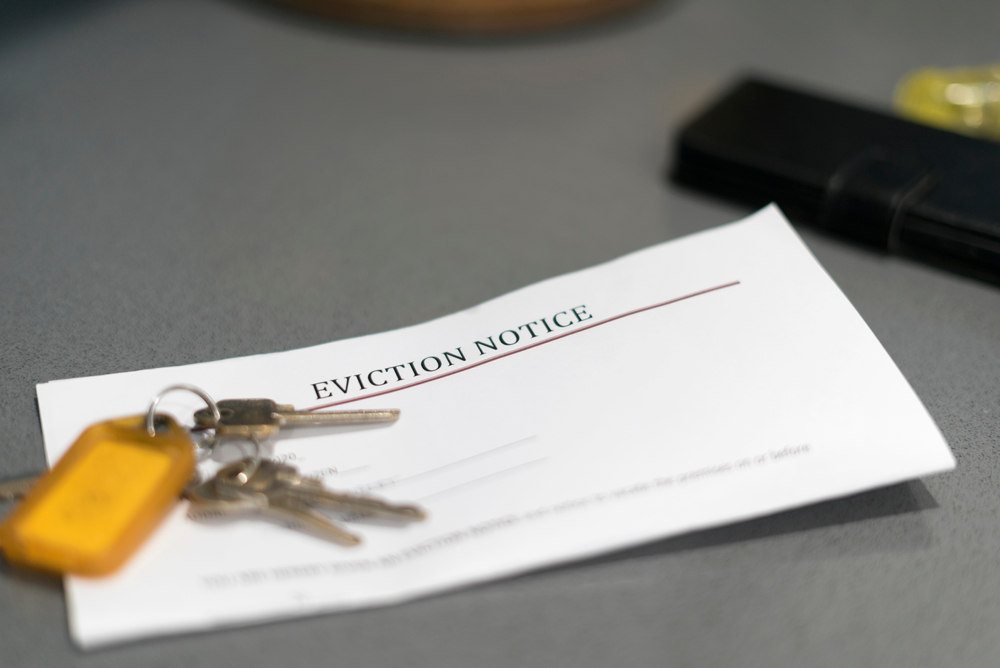No landlord looks forward to the eviction process. Unfortunately, it may be the only option if a tenant violates the lease agreement or endangers other residents. It’s important to know how to proceed in case the need for eviction arises.
For tenants, the eviction process can be an upsetting and frightening time. It’s easy to panic or feel helpless in the face of an eviction notice. We’ve provided a number of suggestions and reminders below to help both landlords and tenants navigate the eviction process.
How to Handle the Eviction Process
From the Landlord Perspective
- Notice for Termination. In the state of Colorado, a landlord must have legal cause to begin the eviction process if the renter’s term has not expired. Causes include failing to make payments, violating the lease agreement and any violent or criminal behavior. They must then provide notice to the tenant. In most cases, landlords will provide a 10-day window to pay rent or fix the violation before they move forward with eviction. It is worth noting, however, that Colorado landlords can end periodic tenancies without cause if they provide a 21-day notice.
- The Lawsuit. If a tenant does not fix their behavior and the notice period has passed, you can file an eviction lawsuit. The tenant must then be notified that a lawsuit has been filed against them. From that point, the courts will schedule a hearing date. If the court rules in your favor or the tenant fails to appear, they will provide you with a writ of restitution within 2 days’ time. This can be presented to law enforcement, who will ultimately remove the tenant. Tenants can only be removed by law enforcement officers in Colorado, never by landlords.
- Disposal of Property. In Colorado, landlords don’t need to let tenants know they’ll be disposing their property. However, you can choose to store it so your evicted tenants can access their belongings.
For further help with the eviction process, including a how-to guide for eviction cases, visit the Colorado Judicial Branch website.
From the Tenant Perspective
- Understand Your Rights. It can be scary to receive an eviction notice, but it’s important to remember you still have rights. If a landlord comes to your door without a sheriff, they cannot force you to leave your home. You will have some time to make a payment or find legal representation. Until you’ve had a chance to fight the case in court, you won’t be forced to leave. Furthermore, eviction notices must be given in writing and describe the reasons for eviction. If your landlord says you’ve been evicted but provides no written notice, it isn’t a legal eviction process.
- Fighting the Eviction. We encourage you to seek representation so you can fight your case in court. Did your landlord maintain your unit properly and fulfill their legal obligations? Do you believe they’re discriminating against you or retaliating in some way? With evidence and a skilled lawyer to advocate your case, you may have an acceptable defense that stands up in court.
- Contact Relatives or Seek Out Local Resources. If you’re evicted, you’ll need to find another place to live as soon as possible. Many people reach out to relatives or friends who are willing to lend a helping hand. However, this may not be a feasible option. Housing counselors and nonprofit organizations in the area can help you find a solution. Don’t worry; this too shall pass, and you will have another chance to rebuild.
Partner with All County Denver South for Expert Property Management Services
If you need a property management company in Denver, look no further! All County Denver South Property Management is here to help property owners have confidence in the quality of their tenants and the security of their property through knowledgeable and trustworthy property management services. From managing tenant relationships to lease enforcement, we look forward to working with you to see how your investment can be a long-term, stress-free asset. For a complimentary quote, or to learn more about the eviction process, call us at (720) 664-4550.
